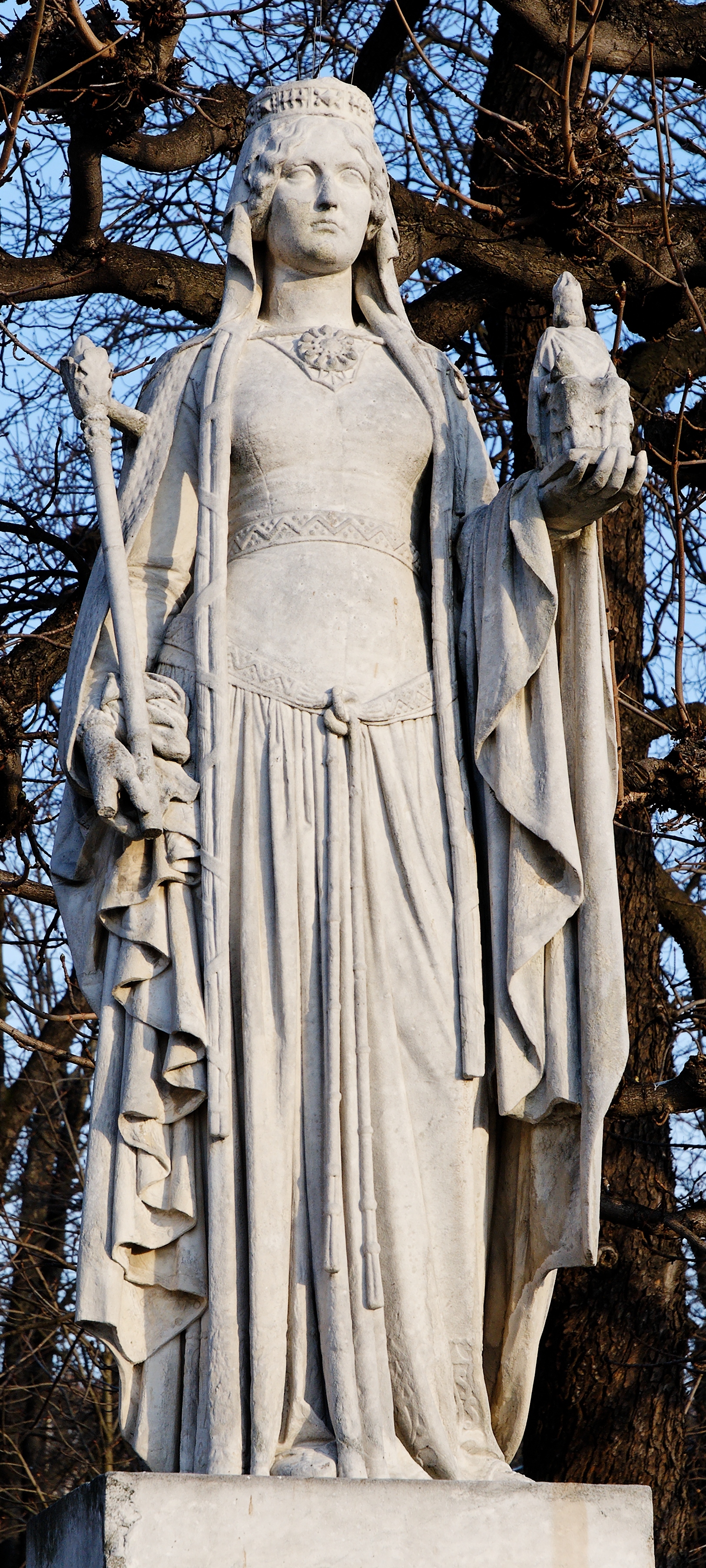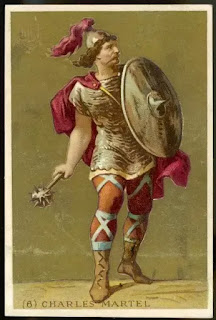In what is now eastern Belgium there was a territory called Hasbania. In French it is now referred to as Hesbaye. The Romans established a town here in the 1st century, which centuries later was settled into by Salian Franks. By the 8th century there was a Count of Hesbaye named Robert. (Robert's wife, Williswinda, founded Lorsch Abbey.) Robert had two sisters, Landrada, who married Sigramnus (who became the next count after Robert's death thanks to his marriage). The other sister, Rotrude, married Charles Martel. Sigramnus and Landrada had a son in the early 8th century, named Chrodegang (died 6 March 766), who was therefore a nephew of Charles Martel who was effectively king of the Franks.
After being educated at the cathedral school of Metz, he joined his uncle's court as referendary, then as chancellor, and finally prime minister. After 742 he is recorded as the Bishop of Metz and prime minister.
When Pope Stephen II came to France for help with the Lombards, Chrodegang was his escort. When Saint Boniface died, Stephen conferred on Chrodegang the pallium that made him an archbishop (although he did not turn Metz into an archbishopric, so the title was honorary without increased administrative controls).
In 762 he fell ill, and at the first Council of Attigny he established listed the "League of Attigny" signed by the bishops and abbots present pro causa religionis et salute animarum ("for the sake of religion and the salvation of souls"). The intent was to support each other spiritually in case of death. Each signee pledged to sing 100 psalms and (if a priest) say 100 masses for the should of the departed.A bishop was only required to celebrate 30 masses, or to designate another to do so if the bishop were ill. Abbots (if they were not a bishop themselves) were to ask a bishop to say the 30 masses. Monks were to sing 100 psalms, but if they were also priests would say 100 masses.
Chrodegang was central to a spiritual revival in Carolingian culture that carried through Charlemagne's reign. He founded Gorze Abbey near Metz and St. Peter's Abbey on the Moselle River. He encouraged the Roman rite and musical chant in Metz, and introduced the "Rule of Chrodegang" to regulate the practices of canons and canonesses. Although canon life involved ministering to those in need rather than being cloistered, Chrodegang's rule urged them to embrace communal living with a communal dining hall.
Similar development among those following a religious life in Ireland can be seen taking place a generation later, and some think it is likely that Irish monks brought Chrodegang's ideas westward, altering the lifestyle of anchorites. Máel Ruain's rules for Culdees is evidence for this, which means I suppose that we should turn to Ireland next and explain. See you next time.





